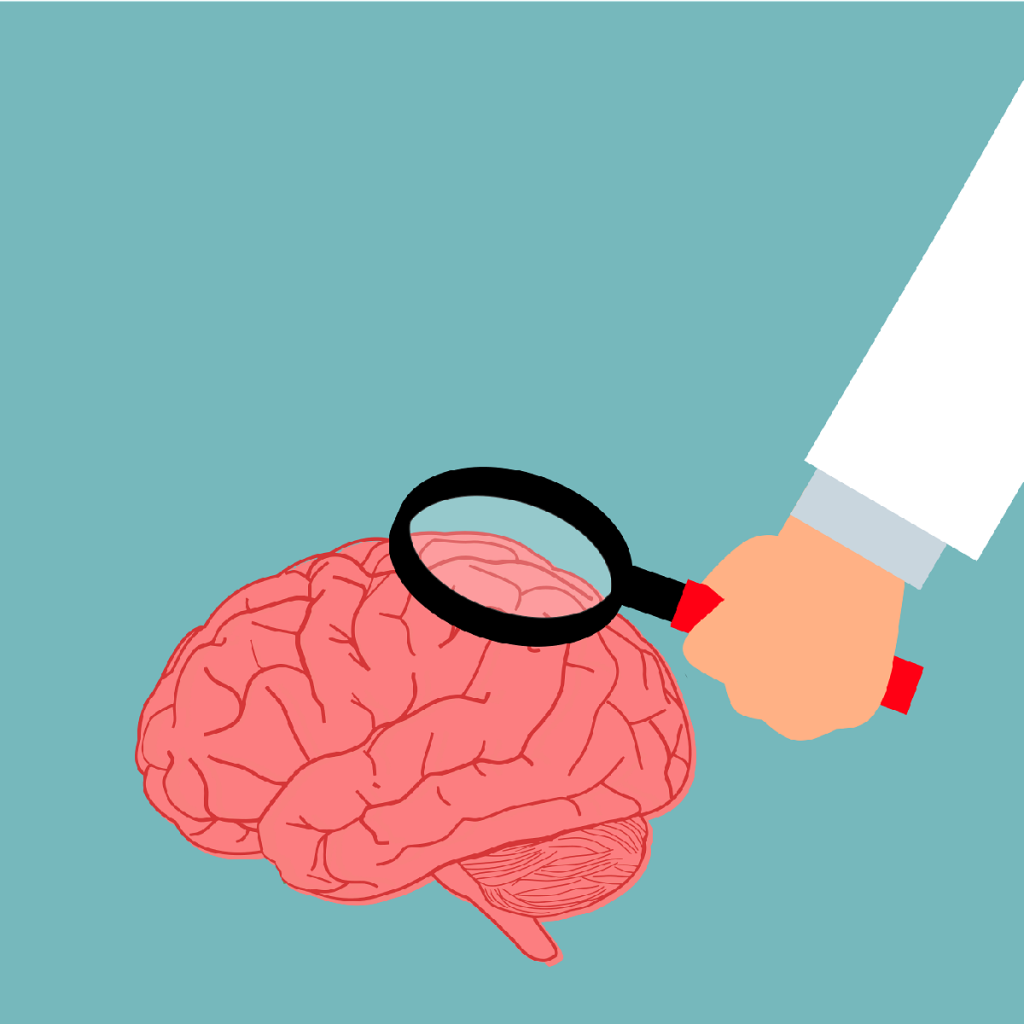Can Nootropics Increase Energy? A Comprehensive Look
08/08/2023

Nootropics, commonly known as "smart drugs," have gained significant popularity in recent years for their potential cognitive-enhancing effects. However, beyond their impact on mental performance, many people wonder if these compounds can also increase energy levels. In this comprehensive article, we will explore the relationship between nootropics and energy, examining the science behind their mechanism of action, the different types available, scientific studies conducted on the topic, as well as potential side effects and risks associated with their use.

Understanding Nootropics: A Brief Overview
Before delving into the connection between nootropics and energy, it is essential to understand what exactly nootropics are and their history.
Nootropics, also known as cognitive enhancers or smart drugs, are substances that are believed to boost cognitive function, including memory, focus, creativity, and motivation. These compounds can range from natural substances like herbs and plant extracts to synthetic compounds created in labs.
But what led to the development of these cognitive enhancers? To truly grasp the significance of nootropics, it is crucial to explore their fascinating history.
What are Nootropics?
Nootropics, as mentioned earlier, are substances that enhance cognitive function. They are designed to improve various aspects of mental performance, making them a popular topic of interest for individuals seeking to optimize their brainpower.
These substances work by targeting specific neurotransmitters, enzymes, and receptors in the brain, influencing their activity and promoting enhanced cognitive abilities. Some of the most commonly targeted neurotransmitters include dopamine, acetylcholine, and serotonin, which play crucial roles in memory, attention, and mood regulation.
The History of Nootropics
The concept of nootropics was first introduced by the renowned Romanian chemist and psychologist, Dr. Corneliu E. Giurgea, in the 1960s. Dr. Giurgea defined a nootropic as a substance that enhances learning and memory while being incredibly safe with minimal side effects.
Dr. Giurgea's groundbreaking definition paved the way for extensive research and development in the field of cognitive enhancement. Over the years, scientists and researchers have explored various compounds, both natural and synthetic, to unlock the full potential of the human brain.
One of the earliest and most well-known nootropics is Piracetam, a synthetic compound developed in the 1960s. Piracetam was found to enhance memory and learning abilities without causing significant side effects. This discovery sparked a surge of interest in the field of nootropics, leading to further exploration and experimentation.
Since then, researchers have been studying and developing various substances that fall under the umbrella of nootropics. These substances include natural compounds like Ginkgo Biloba, Bacopa Monnieri, and Rhodiola Rosea, which have been used in traditional medicine for centuries due to their cognitive-enhancing properties.
Additionally, advancements in technology and scientific understanding have allowed for the creation of synthetic nootropics with even more potent effects. These compounds are carefully designed to interact with specific brain pathways, enhancing cognitive function in various ways.
As the field of nootropics continues to evolve, researchers are constantly discovering new compounds and exploring their potential benefits. From improving memory and focus to boosting creativity and motivation, nootropics offer a wide range of possibilities for those seeking to unlock their cognitive potential.
The Connection Between Nootropics and Energy
While nootropics are primarily known for their cognitive benefits, some individuals believe that certain compounds can also increase energy levels. Let's explore this connection further by examining how nootropics work in the brain and their potential influence on energy production.

How Nootropics Work in the Brain
Nootropics exert their effects on cognitive function by targeting various neurochemical pathways in the brain. These compounds can enhance neurotransmitter activity, promote cerebral blood flow, and support neuroprotection. As a result, individuals may experience improved focus, memory, and mental clarity.
For example, one popular class of nootropics called racetams, such as piracetam and aniracetam, are believed to enhance cognitive function by modulating neurotransmitters like acetylcholine and glutamate. These neurotransmitters play a crucial role in learning, memory, and attention. By increasing their availability or sensitivity, racetams can potentially improve cognitive performance.
Another group of nootropics, known as adaptogens, are believed to enhance brain function by reducing the harmful effects of stress. Adaptogens like rhodiola rosea and ashwagandha have been shown to regulate the body's stress response system, leading to improved mental resilience and energy levels.
Nootropics and Mitochondrial Function
Energy production in the body occurs within tiny cellular structures called mitochondria. Nootropics can potentially impact mitochondrial function, leading to increased energy levels. Some substances, such as CoQ10, alpha-lipoic acid, and acetyl-L-carnitine, have been linked to improved mitochondrial efficiency and energy metabolism.
CoQ10, also known as ubiquinone, is a vital component of the electron transport chain in mitochondria. It plays a crucial role in generating adenosine triphosphate (ATP), the energy currency of cells. By supplementing with CoQ10, individuals may support their mitochondrial function and potentially experience a boost in energy levels.
Alpha-lipoic acid is another nootropic compound that has been shown to enhance mitochondrial function. It acts as a potent antioxidant and helps regenerate other antioxidants like vitamins C and E. Alpha-lipoic acid also plays a role in energy metabolism by facilitating the conversion of glucose into ATP.
Acetyl-L-carnitine is an amino acid derivative that plays a key role in transporting fatty acids into the mitochondria for energy production. By increasing the availability of acetyl-L-carnitine, individuals may support their mitochondrial function and potentially experience improved energy levels.
It is important to note that while some nootropics may have the potential to increase energy levels, individual responses may vary. Factors such as dosage, overall health, and lifestyle habits can influence the effects of nootropics on energy. It is always advisable to consult with a healthcare professional before starting any new supplement regimen.
Types of Nootropics for Energy
Nootropics, also known as cognitive enhancers or smart drugs, have gained popularity for their potential to improve cognitive function, including memory, focus, and overall brain health. While many people turn to nootropics for their cognitive benefits, some are specifically sought after for their ability to increase energy levels. Here, we explore three types of nootropics commonly associated with boosting energy:
Stimulant Nootropics
Stimulant nootropics are perhaps the most well-known category of energy-enhancing nootropics. These compounds, like caffeine and modafinil, work by stimulating the central nervous system, resulting in increased alertness, wakefulness, and overall energy levels. Caffeine, found in coffee and tea, is a popular choice for a quick energy boost, while modafinil is often used to combat fatigue and promote wakefulness in individuals with sleep disorders.
While stimulant nootropics can provide a temporary energy boost, it is important to note that they may also come with potential side effects. These can include increased heart rate, jitters, and difficulty sleeping. Therefore, it is crucial to use these substances responsibly and in moderation.
Adaptogenic Nootropics
Adaptogenic nootropics offer a different approach to increasing energy levels. These substances, such as rhodiola rosea and ashwagandha, are known for their ability to help the body adapt to stress and support overall energy balance. By acting as adaptogens, they may enhance the body's resilience to physical and mental fatigue, promoting increased energy and improved mood.
Rhodiola rosea, a herb native to the Arctic regions, has been used for centuries in traditional medicine to combat fatigue and increase stamina. It is believed to work by regulating the body's stress response and improving oxygen utilization, leading to enhanced energy levels. Similarly, ashwagandha, an herb commonly used in Ayurvedic medicine, has been shown to reduce stress and fatigue while increasing energy and overall well-being.
Cholinergic Nootropics
Cholinergic nootropics offer a unique approach to boosting energy levels by targeting the neurotransmitter acetylcholine. Acetylcholine plays a crucial role in cognitive processes, including memory, attention, and learning. By increasing the levels of acetylcholine in the brain, cholinergic nootropics like citicoline and alpha-GPC have been associated with increased mental energy and focus.
Citicoline, a naturally occurring compound found in every cell of the body, has been shown to enhance brain energy metabolism and improve cognitive function. It may also support the production of acetylcholine, leading to improved mental energy and focus. Alpha-GPC, on the other hand, is a choline compound that readily crosses the blood-brain barrier and increases acetylcholine levels in the brain. It has been studied for its potential to enhance memory and cognitive performance, making it a popular choice among individuals looking to boost their mental energy.
It is important to note that while these nootropics have shown promise in increasing energy levels, individual responses may vary. It is always recommended to consult with a healthcare professional before incorporating any new supplements into your routine, especially if you have any underlying health conditions or are taking medications.
Scientific Studies on Nootropics and Energy
To better understand the connection between nootropics and energy, numerous scientific studies have been conducted. These studies aim to shed light on the potential benefits and limitations of using nootropics to enhance energy levels and cognitive performance.

In one notable study, researchers investigated the effects of ashwagandha supplementation on energy levels and sleep quality. The study involved a group of participants who were given ashwagandha supplements for a specific duration. The results revealed that the participants experienced significant improvements in their energy levels and reported better sleep quality. This finding suggests that ashwagandha may have the potential to boost energy and promote restful sleep.
Another study focused on the effects of citicoline supplementation on cognitive performance and mental energy. The researchers administered citicoline supplements to a group of individuals and assessed their cognitive abilities through various tests. The findings indicated that citicoline supplementation led to enhanced cognitive performance and an overall increase in mental energy. This suggests that citicoline may be a promising nootropic for improving energy levels and cognitive function.
Despite these positive findings, it is important to acknowledge the limitations and criticisms of existing studies in this field. Many studies have small sample sizes, which can limit the generalizability of the findings. Additionally, some studies rely on self-report measures, which may introduce bias and affect the accuracy of the results.
Furthermore, individual responses to nootropics can vary, making it necessary for future studies to explore different populations and dosages. Factors such as age, health status, and genetic variations may influence how individuals respond to nootropics, highlighting the need for personalized approaches in this area of research.
In conclusion, scientific studies have shown promising results regarding the potential of certain nootropics to increase energy levels and enhance cognitive performance. However, more research is needed to further understand the mechanisms behind these effects and to establish optimal dosages and long-term safety profiles. Continued exploration in this field will contribute to a better understanding of how nootropics can be utilized to support optimal energy levels and cognitive function.
Potential Side Effects and Risks of Nootropics
As with any substance, it is crucial to be aware of the potential side effects and risks associated with nootropics, especially if you are considering using them to increase energy levels.
Common Side Effects
Common side effects of certain nootropics can include headaches, gastrointestinal issues, increased heart rate, and insomnia. It is essential to start with low doses and gradually increase as needed, while monitoring your body's response. It is also wise to consult with a healthcare professional before embarking on nootropic supplementation.
Long-Term Risks
While many nootropics are generally considered safe for short-term use, the long-term effects of prolonged use or high dosages are not yet fully understood. It is essential to use these substances responsibly and within recommended guidelines to minimize the potential for adverse effects.
In conclusion, while nootropics are primarily recognized for their cognitive-enhancing properties, some compounds may also influence energy levels. Stimulant, adaptogenic, and cholinergic nootropics have all been associated with increased energy and improved focus. However, it's essential to approach their use with caution, considering potential side effects and the limited research in this area. As the field of nootropics continues to evolve, it is crucial to stay informed and make educated decisions regarding their use.

 Back to Blog
Back to Blog